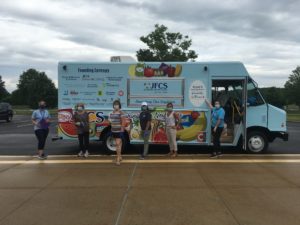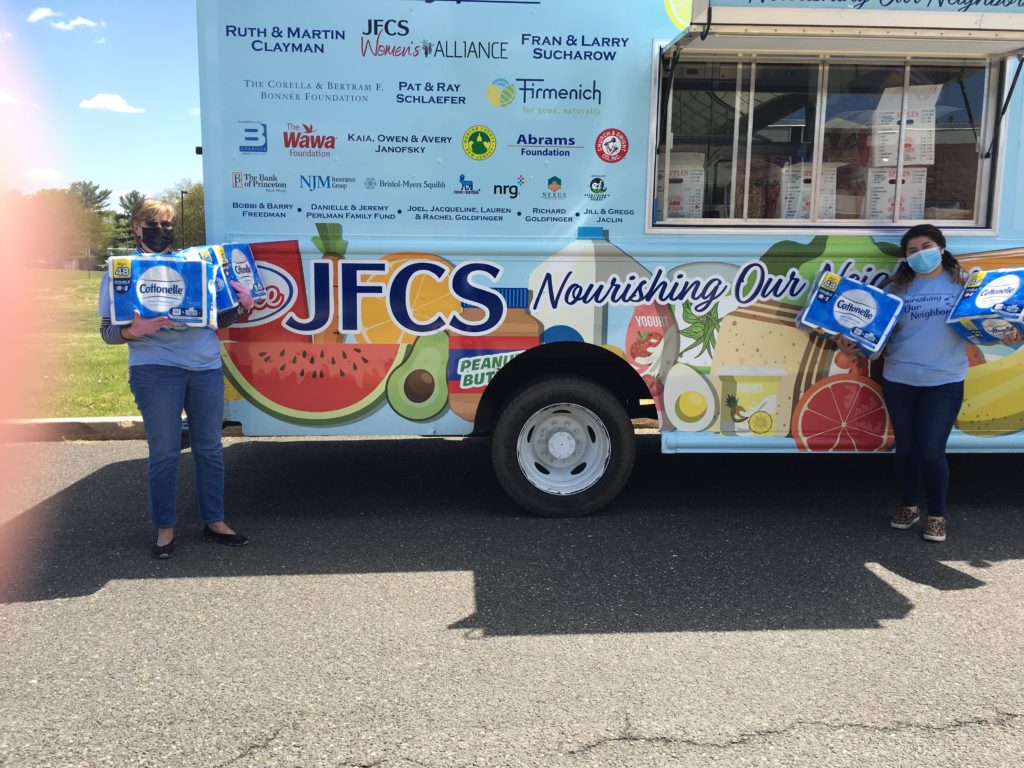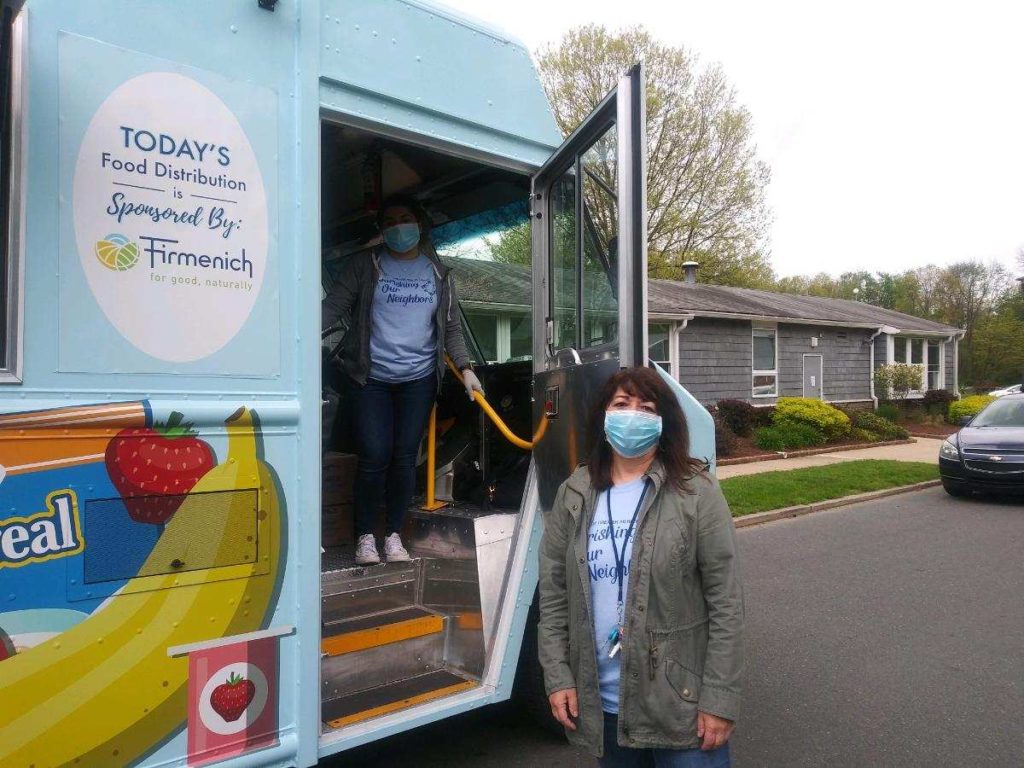JFCS Women’s Alliance Tackling Increasing Hunger during COVID-19
October 5, 2020
In 2019, Jewish Family & Children’s Service of Greater Mercer County [JFCS] introduced the Women’s Alliance, a membership-based collaboration of women focused on addressing hunger in Mercer County. With 78 Founding Members and 25 additional donors contributing over $84,000, the group served as the largest collective founding sponsor of the JFCS Mobile Food Pantry.
Entering its second year, the Women’s Alliance is inviting new and returning members to support this initiative. The Women’s Alliance committee recognized it was more important than ever to support programs addressing food insecurity despite facing the obstacles of creating an engaging, group-based effort in the midst of a pandemic.
“In speaking with Michelle Napell, the JFCS Executive Director, I learned how drastically the pandemic has impacted already vulnerable populations, right here in our community,” said Robin Persky, founding member of JFCS Women’s Alliance and member of the Women’s Alliance Event Committee. “Not only are those populations facing greater challenges to accessing food, but now we have thousands more in need because of job loss and the overall economic impact of COVID. There are so many who never needed the support of a pantry and are now turning to JFCS and other community resources.”
The Women’s Alliance will once again support the JFCS Mobile Food Pantry, which launched in January 2020. The pandemic has accelerated the impact of the mobile program with 3-4 stops being made each week at partner distribution sites across Mercer County. In accordance with health and safety guidelines, the mobile pantry is delivering pre-packed bags of groceries in a contact free manner. JFCS continues to serve healthy options including meat, dairy and fresh produce in addition to non-perishable items. The goal is to return to an all choice pantry when social distancing restrictions are lifted and it is safe to do so.
“We are incredibly appreciative of the Women’s Alliance Committee members for remaining dedicated to their mission in the midst of this pandemic,” said Michelle Napell, Executive Director. “Their support is needed now more than ever.”
The Women’s Alliance Committee has tapped Joanne Canady-Brown to serve as the keynote speaker at their virtual event for members in October. Canady-Brown is the owner of The Gingered Peach in Lawrenceville, NJ and a James Beard Foundation Women’s Entrepreneurial Leadership Fellow. The virtual event will feature Canady-Brown being interviewed by Nora Muchanic, former Action News New Jersey correspondent (6abc Action News) to share her story of “Community and Resilience” from building up her current business, to navigating the challenges of COVID-19 as a small business owner, and how through it all, she has found support from her community, and in turn supported those in need.
This year, there are three membership levels: Contributing Member for minimum donation of $180, Supporting Member for a minimum donation of $540, and Sustaining Member for minimum donation of $1,000. All members will be listed on JFCS Website, in Annual Report and be able to attend the 2020 Member Event, being held virtually:
 Event: Community & Resilience – An Interview with Joanne Canady-Brown, owner of The Gingered Peach, by Nora Muchanic, former Action News NJ correspondent
Event: Community & Resilience – An Interview with Joanne Canady-Brown, owner of The Gingered Peach, by Nora Muchanic, former Action News NJ correspondent
Date: Thursday, October 29, 2020
Time: 12 – 1 PM
Location: Held via Zoom
Private Event for Women’s Alliance Members Only, link provided upon registration
Find more information and additional benefits associated with each membership level on our Women’s Alliance Giving page.
To become a member of the JFCS Women’s Alliance for 2020-2021, contact Helaine Isaacs, Development Associate at 609-987-8100 Ext 104 or HelaineI@jfcsonline.org

 September is Hunger Action Month, a time to become educated on food insecurity and gain awareness on how you can help reduce its impact on our community. Although it may not be easily noticeable, food insecurity affects many communities, including Mercer County.
September is Hunger Action Month, a time to become educated on food insecurity and gain awareness on how you can help reduce its impact on our community. Although it may not be easily noticeable, food insecurity affects many communities, including Mercer County.






